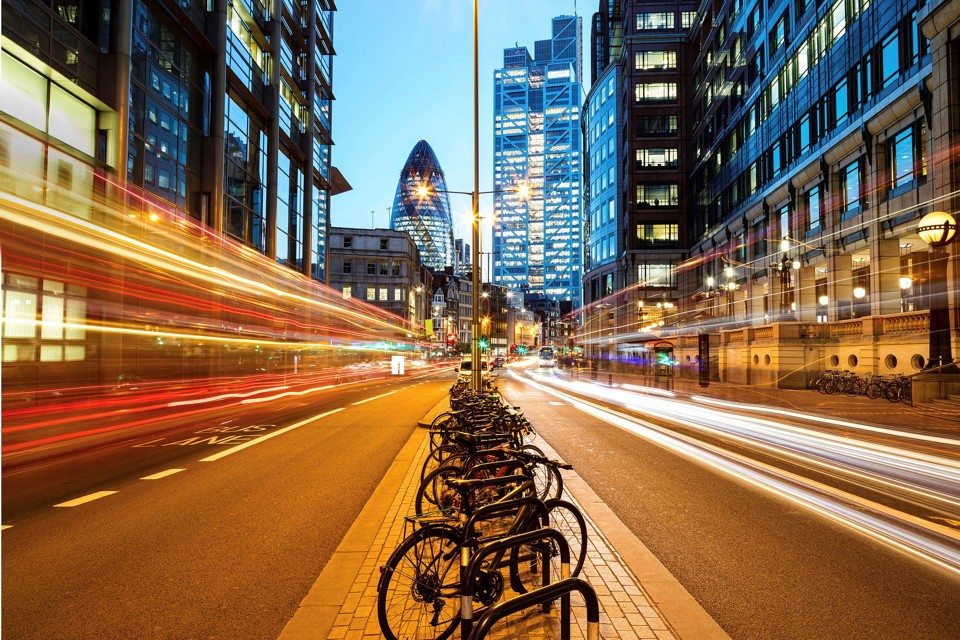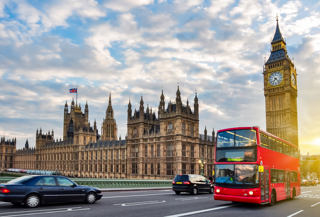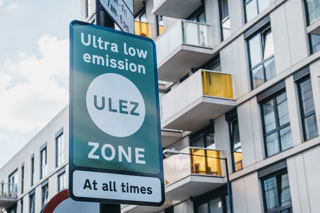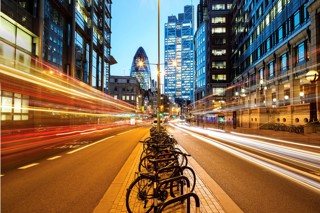Separate charges for entering the ultra-low emission zone (ULEZ) and congestion charge zone, as well as proposed charges for the new Blackwall and Silvertown tunnel, should be replaced with a road-user charging scheme.
A new report, from the Centre for London, is calling for London’s patchwork of road charges to be replaced with a more sophisticated scheme.
By 2025, it says London could have at least five separate road-user charging schemes each featuring different vehicle standards, hours of operation, charge amounts and payment arrangements.
The report - Green Light: Next Generation of Road User Charging for a Healthier, More Liveable London - argues that the Mayor of London should replace existing and planned schemes with a single system, which would be much simpler for drivers to navigate.
The scheme, which the report calls City Move, would charge drivers per mile and apply in areas of high demand and poor air quality.
Rates would vary by vehicle emissions, local levels of congestion and pollution and availability of public transport alternatives, but would be set before the journey begins.
The report argues that City Move would be fairer than the congestion charge and ULEZ, because it would reflect the true level of vehicle usage and its contribution to congestion and pollution in the capital, rather than charging drivers a flat daily rate regardless of how much they drive in the zone.
City Move would also consider the impact of individual journeys in terms of road surface damage, economic costs and environmental damage.
The report sets out radical plans for a multimodal platform integrated with the rest of the capital’s transport system.
Available as an app and website, it would allow customers to compare, plan and pay for journeys using the full range of travel options on offer in the capital.
Using the latest technology, the platform would compare the relative costs and impacts of taking the bus, tube, train, car-sharing, taxi hailing, bike hire, cycling or walking to help users make informed travel choices.
The scheme would encourage more efficient ride sharing and promote the use of public transport, walking and cycling.
The report claims it could help tackle city-wide air pollution, reduce congestion and would be better for business.
It recommends that the Mayor of London should ask Transport for London to develop options for a new approach to road user charging, with a view to introducing the first version of a scheme by the end of the 2020-2024 Mayoral term. This would include developing a customer platform, upgrading the required GPS and mobile network capacity, and a trial to test the technology.
Silviya Barrett, research manager at the Centre for London said: “The congestion charge was pioneering when it was introduced 16 years ago, and the ULEZ is desperately needed to address a growing air quality crisis. But they are both relatively blunt systems.
“Embracing new technology can help create a simpler and smarter system, one which is fairer for drivers and better for the city overall.
“The scheme could be designed to reduce car usage and improve air quality as well as encouraging Londoners to lead more active lifestyles.
“London’s streets would be more pleasant and inviting places where people want to play and socialise. This would help create a healthier, more liveable city.”
The mayor’s transport strategy, published in 2017, made a commitment for Transport for London (TfL) to investigate proposals for the next generation of road-user charging systems.
However, the Mayor of London, Sadiq Khan, told the London Assembly last year that a more sophisticated road-user charging system for the capital was not their number one priority.
Steve Gooding, director of the RAC Foundation, said: “As this report rightly highlights, to have any chance of working smoothly and attracting public support rules and regulations need to be simple to understand and easy to plan for.
“One wonders whether this is the case in London – and increasingly in other towns and cities across the country – where drivers are confronted with an array of charges designed to do different things across different geographical areas. Many could be forgiven for confusing their CCs, CAZs and ULEZs.
“No one would challenge the urgent need to tackle congestion and reduce emissions so the easier things are made for drivers to comply the quicker change will be accepted.”
To read the report, click here.






















Login to comment
Comments
No comments have been made yet.